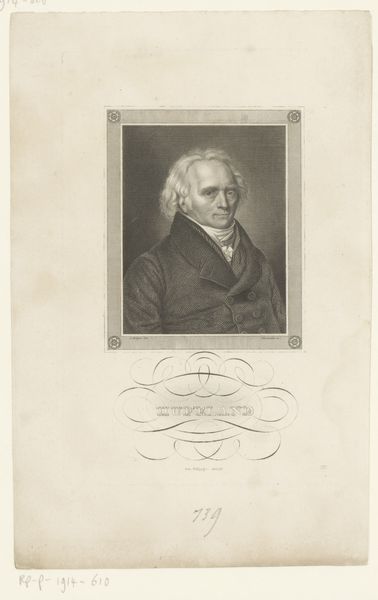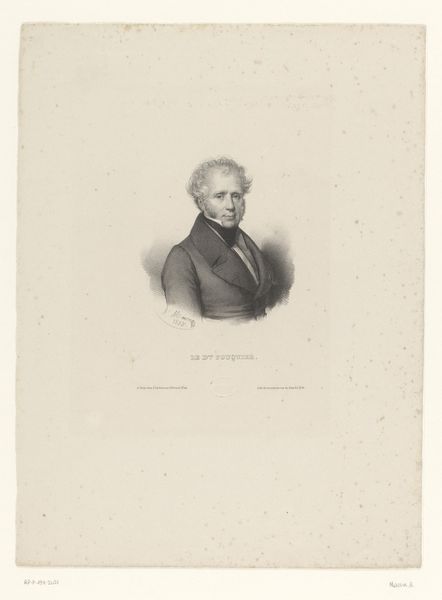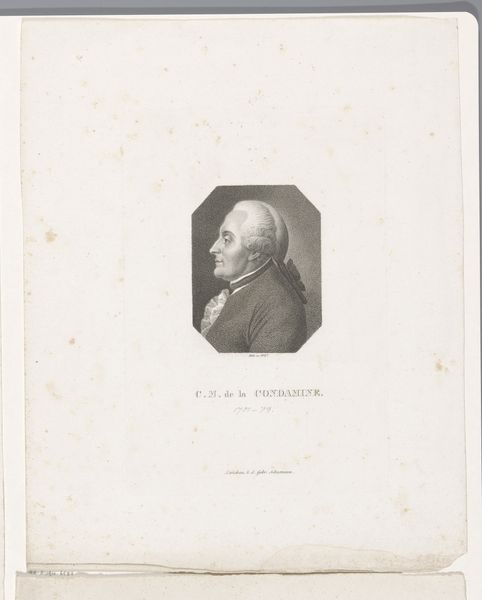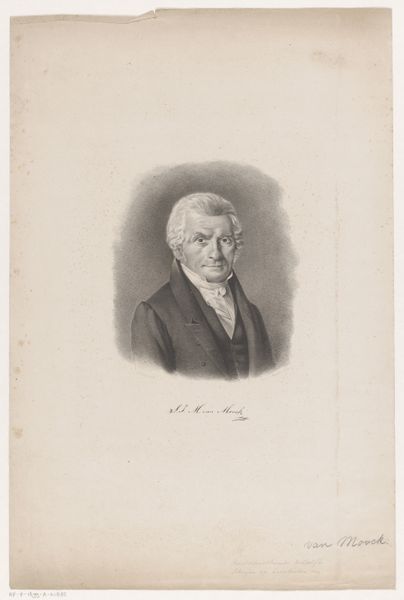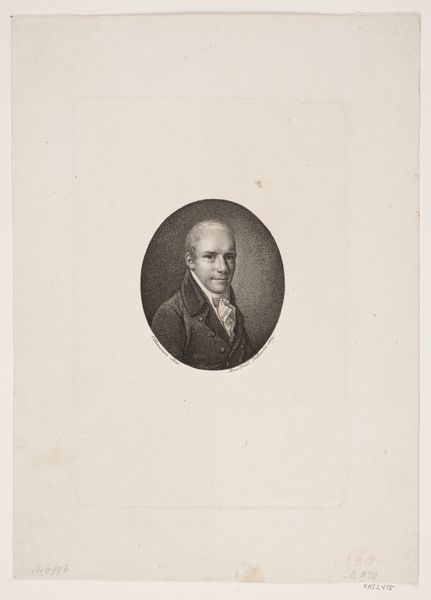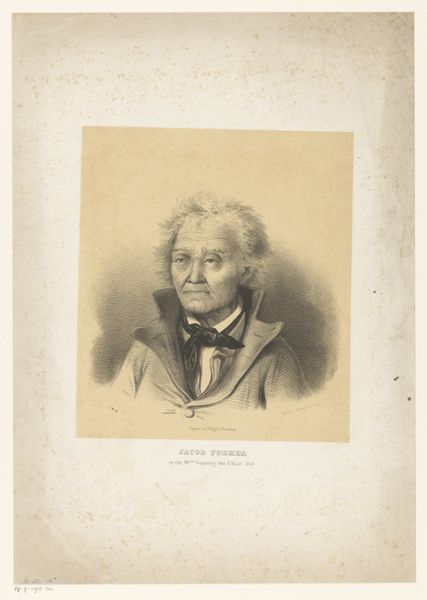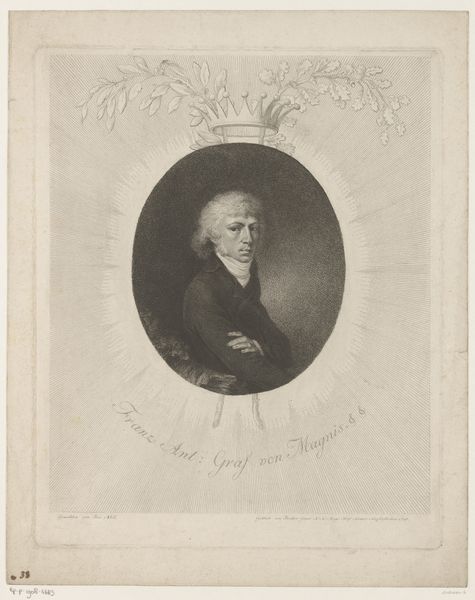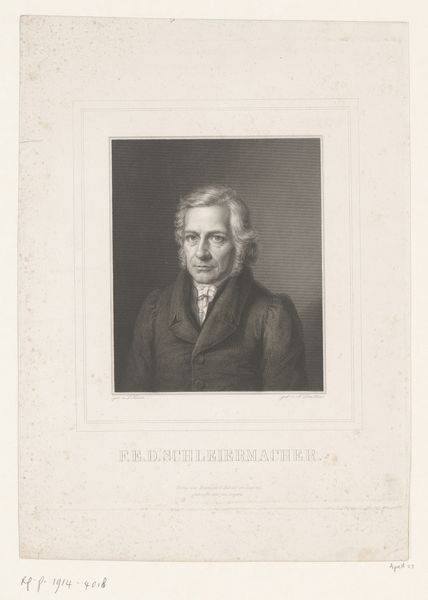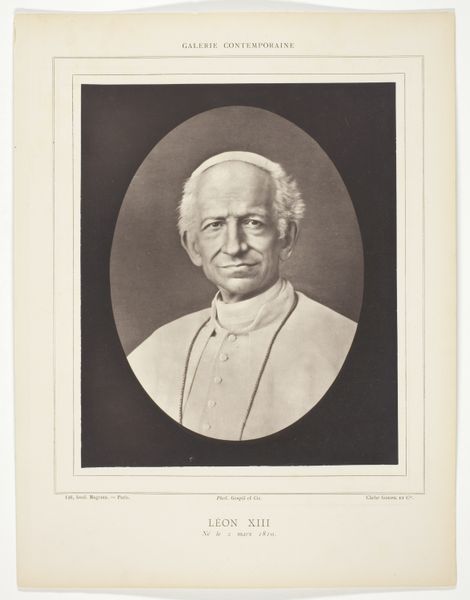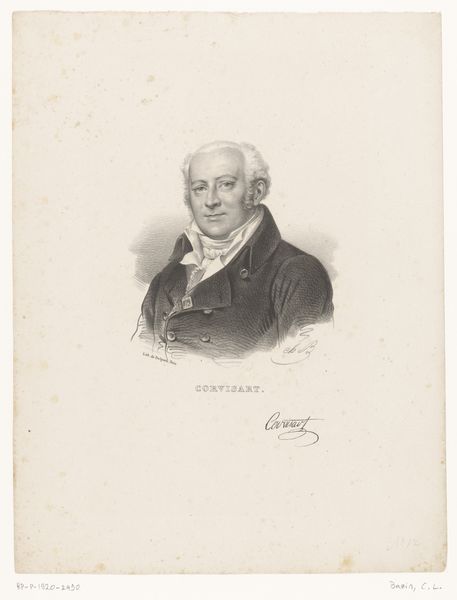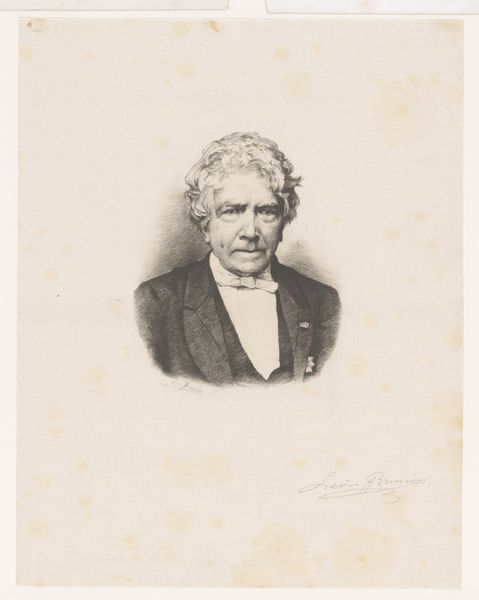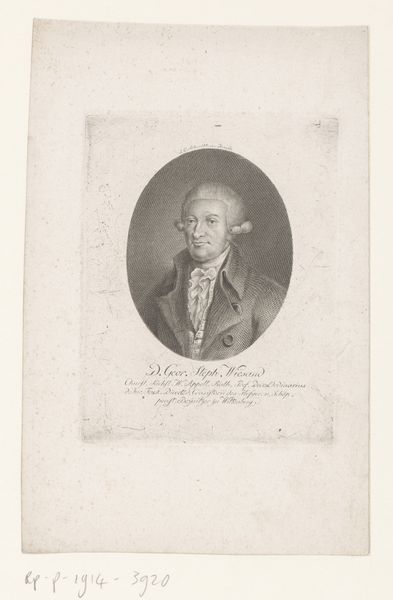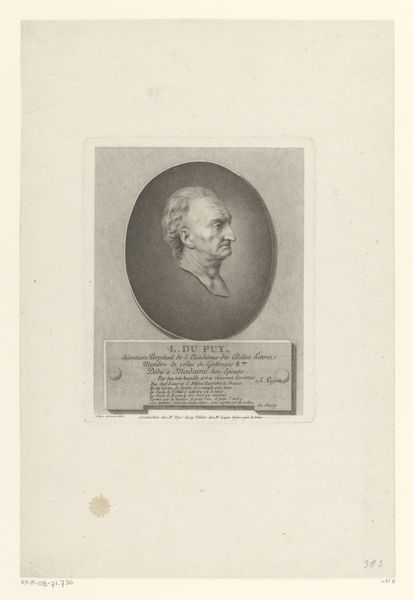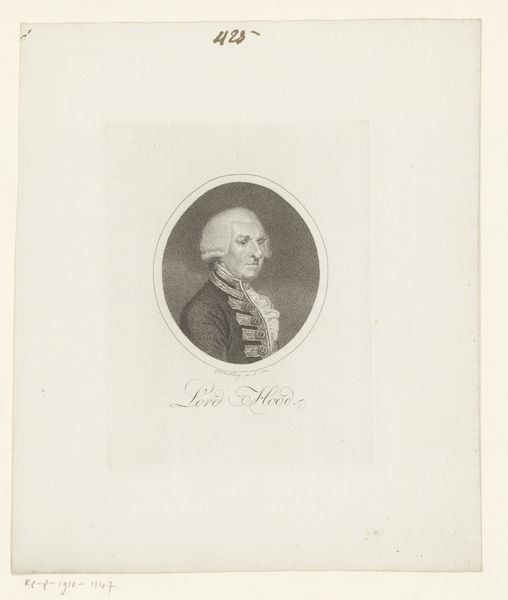
print, etching, engraving
#
portrait
#
negative space
# print
#
etching
#
portrait reference
#
academic-art
#
remaining negative space
#
engraving
#
realism
Dimensions: 180 mm (height) x 140 mm (width) (plademaal)
Curator: Here we have Julius Magnus-Petersen’s print of Christian Jürgensen Thomsen from 1865, residing at the SMK. The artist employed both etching and engraving. Editor: I'm struck by the sheer meticulousness of this portrait. The fine lines create a surprisingly life-like texture, especially in his face and hair. I can only imagine the dedication needed. Curator: Engraving certainly demands a unique skill. Beyond technique, though, Thomsen seems presented as a man of notable importance. He was, after all, crucial in developing the three-age system. Editor: Right, dividing prehistory into the Stone Age, Bronze Age, and Iron Age. But seeing it as an etching, I can't help thinking about print culture at that time—the increasing access to images and the way they shaped public perception of prominent figures. Curator: Absolutely. The oval framing and his confident gaze convey respect. His medals signify service, of course, but I sense more, a cultural authority bestowed through image making. Editor: Yes, there is that element. Think about the original plates—how were they produced? Who owned them? And who had access to the resulting images? This also reflects power, just in different forms. Was the intention to memorialize or popularize, or maybe a bit of both? Curator: Perhaps we see an intentional memorialization, yes. While engravings served as reproducible likenesses, their level of craft still positioned the subject, Thomsen, as someone of significant cultural standing. Editor: It all goes back to the physical labor. Every line etched into that plate speaks of time, skill, and the intent to solidify Thomsen's legacy, not just as a scholar but as a monumental figure of his era. Curator: I’m struck thinking how this work encapsulates a particular vision of archaeological knowledge—one carefully mediated through symbolic imagery and disseminated to the wider culture. Editor: And, for me, understanding the material circumstances surrounding its creation—the processes and the printmaking culture that transformed a man into a figure etched in the annals of time, is equally vital.
Comments
No comments
Be the first to comment and join the conversation on the ultimate creative platform.
